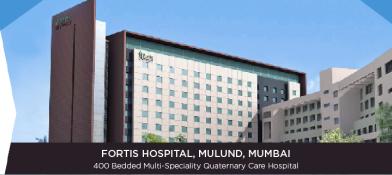Stress test
Overview
A stress test is done to check the heart functioning in response to physical activity. This is also called the stress exercise test as there is a physical activity. Physical activity increases the functioning of the heart.
This test detects the blood flow during the physical activity of the heart. This test is done by doing physical exercise on a treadmill or a stationary cycle. This test gives information about the blood supply and functional capacity of the heart in health and disease.
Indications
A stress test detects how well the heart can function in stress. Information about the pumping capacity, electrical functioning, and structural abnormalities of the heart can be known by this test. It guides treatment decisions, assesses the prognosis, and knows the severity of a disease. It is indicated in the following heart diseases:
- Coronary heart diseases
- Heart rhythm problems like arrhythmias
- Management and monitoring of heart disorders
- Presurgical evaluation
- Detect heart diseases obtained by birth
- Identify structural abnormalities like heart valve diseases
- Increased size of the heart called hypertrophic cardiomyopathy
- Evaluation of high-risk individuals
Clinical symptoms that necessitate this test are
- Pain in the heart called angina
- Irregular heartbeat called arrhythmias
- Dyspnea that causes shortness of breath
- Dizziness or lightheadedness
Contraindications
This test is not indicated in individuals who already have a diagnosis and have undergone treatment. This is not indicated for low-risk individuals who do not have a family history or personal history of heart disease. Physically fit individuals who do not smoke and are on a healthy diet need not undergo this test. This test is not for individuals with heart conditions like aortic dissection and heart muscle inflammation like endocarditis, pericarditis, or myocarditis. It is also not indicated in individuals with recent heart attacks, narrowing of the heart valves, uncontrolled arrhythmia, and ongoing chest pain.
Advantages
The stress test has many advantages:
- It gives information about the present condition of the heart if one wants to start physical exercises
- It can help the healthcare provider to determine if the treatment is working or not
- Early detection of heart abnormalities
Before the procedure:
Before undergoing a stress test an individual should give a history of the medical conditions, recent surgeries, medications like blood thinners, over-the-counter, or any herbal medications that are taken, and the type and frequency of physical exercise will be enquired by the HCP.
Instructions will be given regarding the medications to be taken before the test. An individual should also give information regarding their pregnancy status. Vitals like blood pressure and pulse will be checked by the HCP. Diet and smoking are the factors that can affect stress test results. Hence, it is advisable not to smoke, vape, or take alcohol, caffeine, carbonated drinks, or highly processed foods at least 24 hours before the test.
It is better to avoid even decaffeinated drinks before the test. An individual has to stop eating anything at least 3-6 hours before the test. If an individual is taking inhalation medications for asthma one can get them with them.
Certain factors are considered before undergoing a stress test. These are
- Age and sex of the individual
- Family history of heart diseases
- Existing symptoms
- Presence of any risk factors
During the procedure:
One has to be relaxed before undergoing the test. After removing the body hair, sticky patches called electrodes are attached to the chest, arms, and legs. This is an electrocardiogram that records the rhythm of the heart. This is connected to a screen to record the reading which comes in a printed sheet.
A cuff is wound around the arm to monitor the blood pressure and note any abnormalities during the test. One has to breathe through a tube to check the breathing pattern during the exercise.
The physical exercise is done on a treadmill or a stationary bike that starts with an easy pace and gets tougher as the exercise is done. One can do the test until their heart rate reaches the target or till the symptoms of lightheadedness, dizziness, pain in the heart, shortness of breath, irregular heart rhythm, or abnormal blood pressure develop.
Occasionally if an individual is not able to finish the test, they are given medication through an intravenous line. These medications are stimulants that increase the activity of the heart by increasing the blood flow to the heart. One can stop the test at any time they are feeling uncomfortable.
After the procedure:
The entire test takes about an hour including the preparation but the physical exercise test lasts only 15 minutes based on the capability of the individual. After the test, an individual is asked to stand still for some time and then lie down to relax.
Interpretation:
The test results help the HCP to come to the following conclusions:
- To continue the same treatment plan
- To change the present treatment plan
- If there is an artery disease called coronary heart disease then advise for further procedures like coronary angiogram.
- Further investigations if the results are not useful to come to a diagnosis
Risks and complications:
Stress tests are non-invasive and are generally safe. However, complications like a severe drop in blood pressure can occur leading to fainting or dizziness. Irregular heart rhythm may develop that subsides after the test. Occasionally, the test can induce a heart attack due to an improper supply of blood to a part of the heart.
Conclusion:
The stress test or exercise stress test is done to check the functioning of the heart. It helps in the diagnosis, treatment plan, monitoring of disease, and prognosis. It helps in the early detection and prompt management increasing the quality of life.
































